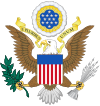 Global Information
Global InformationThirteen Colonies information
Thirteen Colonies | |||||||||||
|---|---|---|---|---|---|---|---|---|---|---|---|
| 1607–1776 | |||||||||||
  Flag of British America (1707–1775) Flag of Thirteen Colonies (1776–1777) | |||||||||||
| Anthem: God Save the King | |||||||||||
 The Thirteen Colonies (shown in red) in 1775 with modern borders overlaid | |||||||||||
| Status | Colonies | ||||||||||
| Government | Various colonial arrangements | ||||||||||
| Monarch | |||||||||||
• 1607–1625 | James I & VI (first) | ||||||||||
• 1760–1776 | George III (last) | ||||||||||
| History | |||||||||||
• Roanoke Colony | 1585 | ||||||||||
• Virginia Colony | 1607 | ||||||||||
• New England | 1620 | ||||||||||
• Rhode Island Royal Charter | 1663 | ||||||||||
• New Netherland ceded to England | 1667 | ||||||||||
• Treaty of Utrecht | 1713 | ||||||||||
• Province of Georgia | 1732 | ||||||||||
• French and Indian War | 1754–1763 | ||||||||||
• Articles of Association | 1774 | ||||||||||
• Independence declared | 1776 | ||||||||||
• Treaty of Paris | 1783 | ||||||||||
| Population | |||||||||||
• 1625 | 1,980[1] | ||||||||||
• 1775 | 2,400,000[1] | ||||||||||
| |||||||||||
| Today part of | United States | ||||||||||
| This article is part of a series on the |
| History of the United States |
|---|
 |
|
The Thirteen Colonies were a group of British colonies on the Atlantic coast of North America during the 17th and 18th centuries. Grievances against the imperial government led the 13 colonies to begin uniting in 1774, and expelling British officials by 1775. Assembled at the Second Continental Congress in Philadelphia, they appointed George Washington as commander-in-chief of the Continental Army to fight the American Revolutionary War. In 1776, Congress adopted the Declaration of Independence as the United States of America. Defeating British armies with French help, the Thirteen Colonies gained sovereignty with the Treaty of Paris in 1783.
The Thirteen Colonies in their traditional groupings were: the New England Colonies (New Hampshire, Massachusetts, Rhode Island, and Connecticut); the Middle Colonies (New York, New Jersey, Pennsylvania, and Delaware); and the Southern Colonies (Maryland, Virginia, North Carolina, South Carolina, and Georgia).[2] These colonies were part of British America, which also included territory in The Floridas, the Caribbean, and what is today Canada.[3]
The Thirteen Colonies had similar political, constitutional, and legal systems, and each was largely dominated by Protestant English-speakers. The first of the colonies, Virginia, was established at Jamestown, in 1607. The New England Colonies, Maryland, and Pennsylvania, were substantially motivated by their founders' concerns related to the practice of religion. The other colonies were founded for business and economic expansion. The Middle Colonies were established on the former Dutch colony of New Netherland.
Between 1625 and 1775, the colonial population grew from 2 thousand to 2.4 million, largely displacing the region's Native Americans. The population included people subject to a system of slavery, which was legal in all of the colonies. In the 18th century, the British government operated under a policy of mercantilism, in which the central government administered its colonies for Britain's economic benefit.
The 13 colonies had a degree of self-governance and active local elections,[a] and they resisted London's demands for more control over them. The French and Indian War (1754–1763) against France and its Indian allies led to growing tensions between Britain and the 13 colonies. During the 1750s, the colonies began collaborating with one another instead of dealing directly with Britain. With the help of colonial printers and newspapers, these inter-colonial activities and concerns were shared and led to calls for protection of the colonists' "Rights as Englishmen", especially the principle of "no taxation without representation".
Conflicts with the British government over taxes and rights led to the American Revolution, in which the colonies worked together to form the Continental Congress and raised the Continental Army. They fought the American Revolutionary War (1775–1783) with the aid of the Kingdom of France and, to a much lesser degree, the Dutch Republic and the Kingdom of Spain.[6]
- ^ a b U.S. Census, 1906, p. 9
- ^ "The 13 Colonies". HISTORY. Retrieved May 11, 2020.
- ^ Fradera, Josep M. (2020). "1780–1880: A Century of Imperial Transformation". In Tomich, Dale W. (ed.). Atlantic Transformations: Empire, Politics, and Slavery during the Nineteenth Century. SUNY Series: Fernand Braudel Center Studies in Historical Social Science. Albany, New York: SUNY Press. pp. 1–19. ISBN 9781438477848. LCCN 2019049099.
- ^ Mintz Steven. "Winning the Vote: A History of Voting Rights - Gilder Lehrman Institute of American History". www.gilderlehrman.org. Retrieved November 12, 2023.
- ^ Wood, James E. (1987). ""No Religious Test Shall Ever Be Required": Reflections on the Bicentennial of the U.S. Constitution". Journal of Church and State. 29 (2): 199–203. doi:10.1093/jcs/29.2.199. ISSN 0021-969X. JSTOR 23916451.
- ^ Middleton, Richard; Lombard, Anne (2011). Colonial America: A History to 1763 (4th ed.). Chichester, England: Wiley-Blackwell. ISBN 978-1-4051-9004-6. OCLC 682892448.
Cite error: There are <ref group=lower-alpha> tags or {{efn}} templates on this page, but the references will not show without a {{reflist|group=lower-alpha}} template or {{notelist}} template (see the help page).